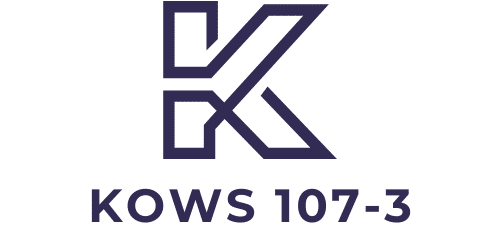In the fascinating realm of artificial intelligence (AI), you’re liable to encounter a myriad of opportunities and challenges. When these technologies percolate into the real estate sector, the potential is staggering, yet equally fraught with legal and ethical dilemmas. This article aims to enlighten you on the labyrinth of legal and ethical challenges that pervade AI-driven real estate. Furthermore, it endeavors to offer insights on the best practices to navigate these challenges while ensuring the protection of data and privacy.
Understanding the Intersection of AI and Real Estate
The real estate industry is not immune to the pervasive influence of AI, which is swiftly reshaping traditional business systems. From automating property management tasks to predicting market trends, AI is metamorphosing the way businesses operate in the real estate sector. However, as AI continues to create waves of innovation, it’s crucial to become mindful of the associated legal and ethical challenges.
A lire également : What Are the Emerging Trends in Sustainable Architecture and Green Building?
AI, in essence, is a collection of algorithms and software developed to mimic human intelligence. This technology is being increasingly implemented in real estate, offering potential to revolutionize how businesses operate. AI-driven systems can streamline processes, enhance decision-making, and provide predictive insights into market trends, amongst other benefits.
However, as the implementation of AI technology in real estate grows, so does the complexity of navigating the associated legal landscape. Legal challenges such as data protection laws, privacy regulations, and software accountability are becoming increasingly pertinent.
En parallèle : How to Utilize Modern Cooking Techniques Like Spherification for Stunning Appetizers?
Confronting Data Protection and Privacy Challenges
One of the most pressing legal concerns about AI implementation in real estate is the protection of data. AI systems rely heavily on data, and as such, the risk of data breaches or misuse is ever-present. The ethical and legal obligation to protect individuals’ privacy is paramount, and businesses need to take necessary precautions to ensure this protection.
AI systems, with their reliance on vast amounts of data, pose a high risk of breaching data protection laws. Misuse of personal data, or failure to adequately protect this data, can have severe legal consequences. It is therefore imperative that real estate businesses using AI systems are well versed in data protection law, and have robust systems in place to protect data and privacy.
Navigating the Legal Landscape: Accountability and Liability
Legal accountability is a crucial issue for AI-driven businesses. With AI systems making decisions that can significantly impact people’s lives, it’s essential that there is clear accountability for these decisions. However, the nature of AI systems creates challenges in determining who is legally accountable when things go wrong.
In the case of AI use in real estate, who should be held responsible if an AI system makes a mistake or causes harm? Is it the developers who created the software, the businesses that implemented it, or the AI system itself? These are complex legal questions that currently lack clear answers, posing significant challenges for businesses in the industry.
Ensuring Ethical Use of AI in Real Estate
Beyond the legal implications, ethical considerations are equally pressing when it comes to AI. AI systems have the potential to greatly impact individuals and communities, and businesses have a responsibility to ensure that their use of this technology is ethical.
In the realm of real estate, this means ensuring that AI systems are not used to discriminate against individuals or groups, or to unfairly influence market trends. It also means ensuring that individuals’ privacy is respected, and that data is collected and used in an ethical manner.
Future Development of AI in Real Estate: Potential and Risks
Looking forward, the development of AI in the real estate sector presents both potential benefits and risks. On one hand, AI has the potential to greatly enhance efficiency and decision-making in the industry. On the other, it brings with it a host of ethical and legal challenges that must be carefully navigated.
As you forge ahead in the exciting yet challenging landscape of AI-driven real estate, remember to keep these considerations in mind. Legal and ethical challenges need not stifle innovation, but rather should inform it, ensuring that the benefits of AI are reaped responsibly and ethically.
Addressing Intellectual Property and Job Displacement Concerns
Intellectual property (IP) law forms a critical aspect of AI development, chiefly because many AI systems are based on proprietary software or algorithms. Intellectual property laws protect these innovations, ensuring that the creators reap the rightful benefits of their ingenuity. A notable challenge for law firms and real estate businesses is navigating the intricate IP laws associated with AI technology, which diverges significantly from conventional property law.
AI systems may use patented algorithms or licensed software which can lead to potential infringements and legal disputes. Law firms specializing in IP law are a crucial asset to any real estate company venturing into AI. These professionals can help navigate the complex landscape of IP law and ensure compliance. It’s advisable for real estate businesses to have a thorough understanding of IP laws and to obtain informed consent before using patented technology.
The advancement of AI also brings about the concern of job displacement. AI has the potential to automate many tasks in the real estate sector, potentially leading to job losses. This is not only an ethical concern but could also lead to legal disputes over unfair job terminations. Businesses may need to consider strategies for staff retraining or redeployment to mitigate this.
The Role of Legal Frameworks and Ethical Guidelines
Legal frameworks and ethical guidelines play a pivotal role in the application of AI in real estate. These frameworks provide boundaries and guidelines that help to ensure the responsible use of AI. In the United States, for example, there are regulations regarding data privacy, intellectual property, and decision-making processes that businesses must adhere to.
To navigate the legal challenges, law firms and legal professionals are indispensable. They can provide guidance on a range of issues, including data protection, intellectual property, privacy security, and business law. Furthermore, ethical guidelines can provide a framework for how AI should be used responsibly. This might include ensuring transparency in decision-making processes, gaining informed consent for data usage, and considering the potential impacts on job displacement.
It’s crucial to note that while legal frameworks offer a structured approach to managing the challenges posed by AI, they are not a panacea. They should be supplemented with ethical considerations, informed by societal values and norms. Ethical considerations can serve as a moral compass, guiding businesses in making decisions that are not only legally compliant but also socially responsible.
Conclusion
The intersection of AI and real estate is an exciting frontier, filled with potential for innovation and growth. Yet, this intersection is also fraught with legal and ethical challenges that must be carefully navigated. From data protection to intellectual property and job displacement, these challenges necessitate a robust understanding of legal frameworks and ethical guidelines.
AI has the potential to revolutionize the real estate industry, enabling more efficient processes, informed decision making, and predictive insights. However, it’s crucial that this technology is used responsibly, ensuring respect for data privacy and ethical considerations. As businesses venture into this new era of AI-driven real estate, they must prioritize legal compliance and ethical usage above all, ensuring that the potential of AI is harnessed in a way that respects the rights and privacy of all individuals.





